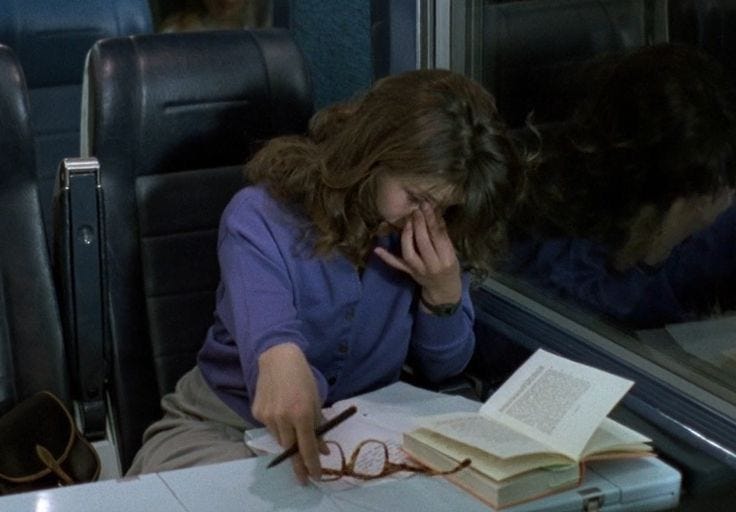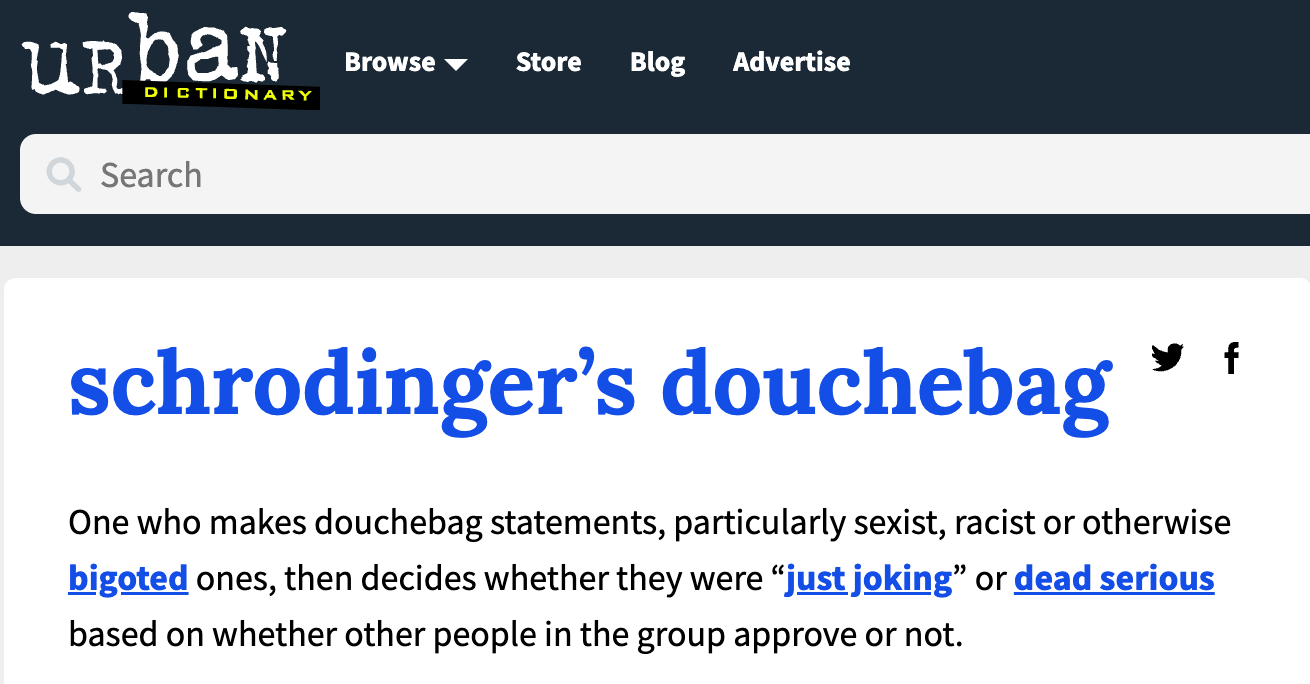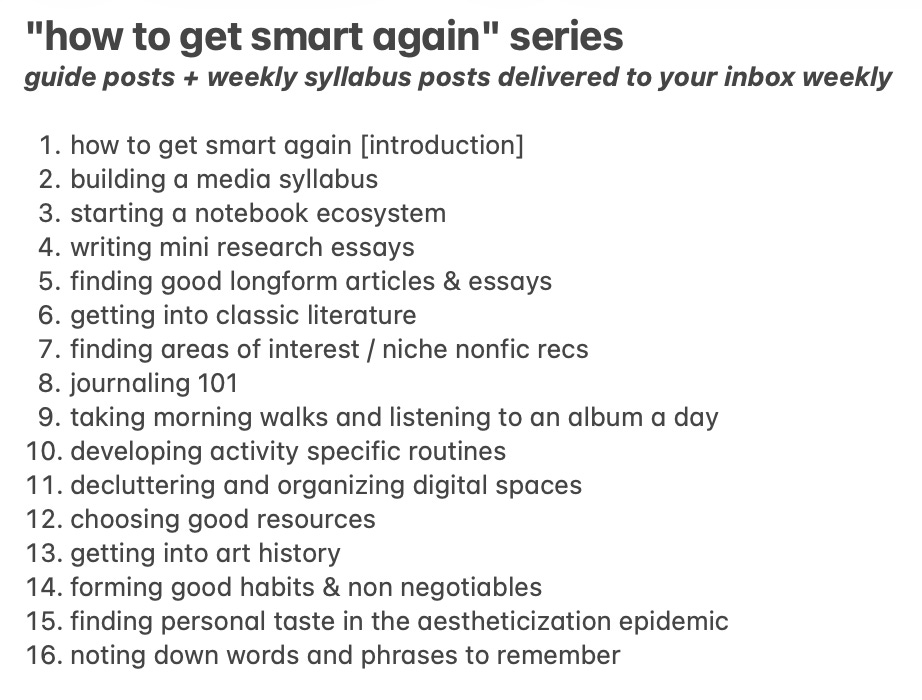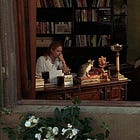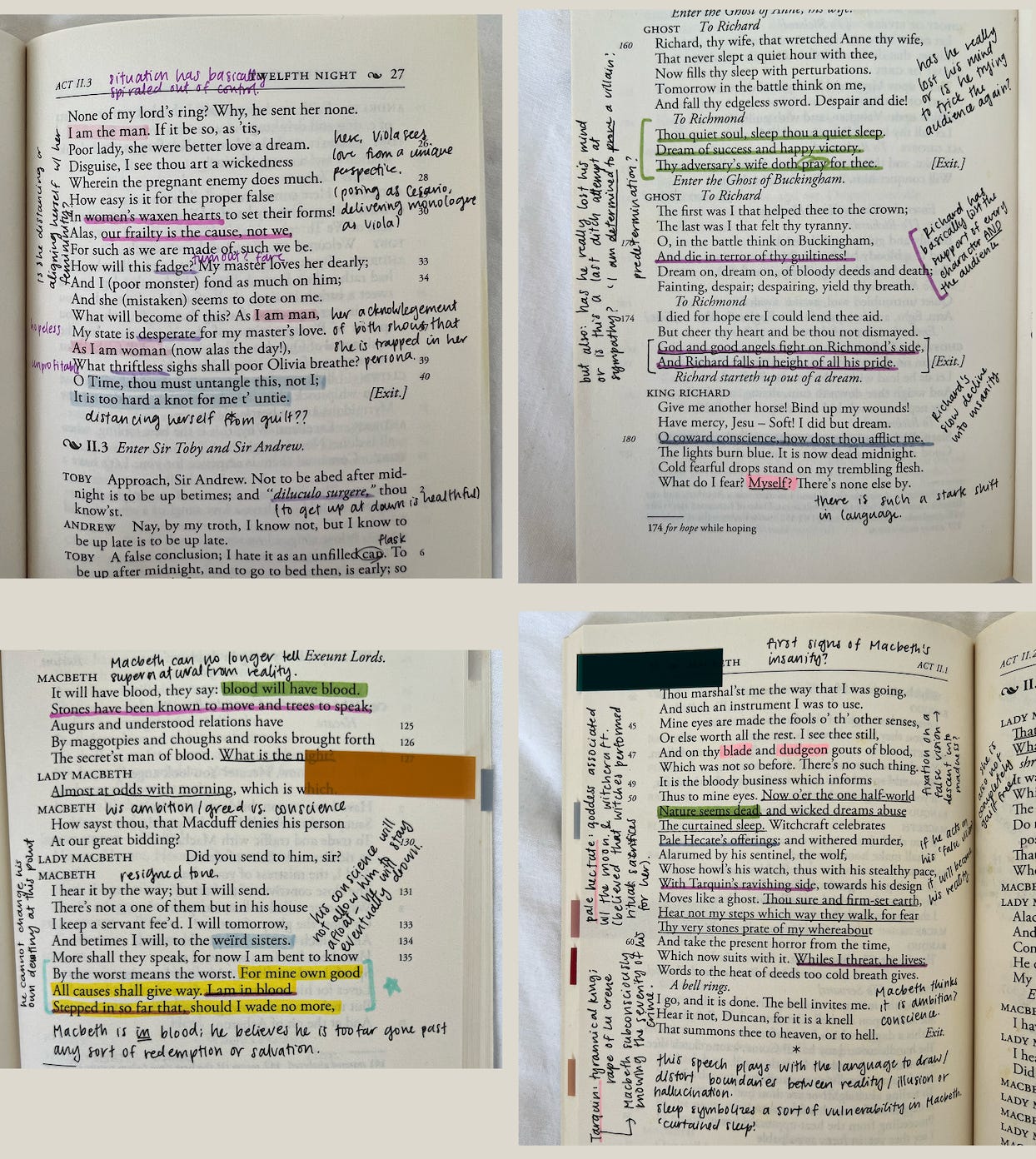how to get smart again: becoming a better reader
developing reading skills, critical analysis, annotations & notes, and books/essays that transformed my way of thinking
There’s an empathy deficit in the world, and everyone seems desensitized to everything. I know that may be completely unrelated to the title of this post, but empathy and reading are inextricable.
Why is reading such an important activity? And how can you be a better reader? I read because I love reading, but I also read to continuously hold myself accountable in broadening my perspectives and understanding of the world and not allowing myself to ever become narrow minded or grossly individualistic. I’ve written time and again on the importance of reading—how it’s essentially food and nutrients for your brain, and it’s a surefire way to develop and hone your critical thinking skills. With better critical thinking skills comes a deeper sense of empathy and understanding for the world and its people, which is possibly the most crucial thing to have right now in 2025.
A noticeable and tragic trend is that there seems to be an exponential decline in human decency. I’ve been trying to pinpoint exactly when this started because it can’t have been that bad forever. Maybe it’s because nothing feels real anymore. Creative media made completely by generative AI is rampant, everything is online first and offline second, and my first means of communicating with a friend is through a text rather than even a call. Algorithms on social media feeds only regurgitate posts making the same point as you, endless cycles of self confirmation biases that leads to a skewed view of the world. The internet seems like one big cesspool of every user practicing the law of schrodinger’s douchebag because one is apparently allowed to make awful statements if they’re ‘just kidding’ or ‘using dark humor’. Everyone alive right now is stuck in the same room together on the internet, losing sanity, and of course, empathy and compassion are the first qualities to go.
We’ve reached debilitating levels of instant gratification and dopamine rushes as a society, and no one is willing to detox. Detoxing isn’t anything drastic; it doesn’t mean throwing your phone in the ocean and going off grid. Nor does it mean deleting all of your social media accounts. It means not asking for relationship advice from ChatGPT. It means opening an actual good book instead of scrolling short form content filled with summaries primed for ten second videos. It means trusting your brain enough, being thorough and careful enough with forming your own opinions over trusting strangers’ opinions on a tweet. The need for an immediate answer to everything, whether right or wrong, has bled out the shades of gray on every spectrum, I think. Everything feels rudimentary, bereft of nuance, sitting on a black and white binary.
I truly do think one of the best remedies for this is allowing ourselves to use our brains again and developing and honing critical thinking skills. Confining all activities requiring thinking to a social media feed or Google AI or ChatGPT, all three of which are atrociously biased, holding everyone caged in solipsism, which leads to a lack of empathy and self awareness. I think the easiest and most simple way of getting all of these important qualities back is just reading, and reading better. While my love for reading has not changed since I could understand words on a page, the way I process and analyze books has. Of course, this is through many years of English classes, reading books of varying levels of difficulty, and just growing up in general, but there are things that I have actively started implementing as well.
table of contents:
things to implement to be a better reader
making a reading syllabus (with two examples)
my method of finding good quality books and essay articles
tips on annotating and taking notes
a list of books & essays that transformed my way of thinking
[this is a supplement post for my how to get smart again series for paid subscribers—check out the upcoming posts here. if you think this is something you’d enjoy, please consider upgrading your subscription! you can check out the weekly syllabus posts and the first six parts here]
1. things to implement to be a better reader
- Actively want to learn new information. A book, or the experience of reading a book, purely depends on the way you approach the material. The best way to do this, in my opinion, is to keep your eyes open for new things. In fiction, this could include but not be limited to: vocabulary, sentences you really like, metaphors, and specific subgenres. In nonfiction, this could be a historical period or event briefly mentioned in the introduction of an essay, a person you want to do a deep dive into. You should always keep a small notebook with you at all times to write down these new things, and you should also try writing mini research essays.
- Find themes that group books together. I’ve started making various syllabi, especially for reading. I find that doing so helps me find connections and themes within literature, and reading these books offers a deeper and more comprehensive understanding of a certain idea or concept. I like taking a week or two to think of a theme and read various books that correlate to it. This should not only be limited to books, but you should incoropate I’ve briefly stated how I find common themes to make a syllabus and some short examples to get you started in the section below!
- Read a wide range of texts. Your body is only as good as the nutrients you put into it, right? Same goes for your brain. If you constantly feed it mindless short form content, the capacity of your brain and attention span will be confined to the ten seconds you allow for it to have before moving on. If you read books that don’t let you sit with it and inspect between the lines, you’ll be bereft of the ability. If you only consume one sort of genre or text type (whether it just be thrillers or romance, or just fiction), it’ll be the same as someone who just eats fruits or a one food diet. I think it’s totally fine if you venture outside of your comfort zone and decide something is not for you, but don’t pigeonhole yourself to just one thing!
Additionally, always remember that books aren’t the only way you can read, and thinking so creates a narrow mindset. The ways in which you can be a reader is everywhere—in articles on the internet, magazines at your local bookstore, even on labels on food jars. Some of the best things I’ve read are essays on the internet or a poem in a magazine.
- Consistency is key. I’ve realized that I read the most books and digest them the best when I incorporate reading into my routine. Every morning, I make sure to read for half an hour as soon as I open my eyes before doing anything (especially checking my phone), and I read for an hour before going to bed. Reading in small chunks builds up, and I always end up reading at least two books every single week (that’s around a hundred books a year—of course, if the book is lengthy or dense, I take longer).
- Annotate, make notes. One of the most important things about reading is actively engaging with the pages. There is really no ‘right way’ to analyze, but here are some things I pay attention to: further implications of actions, characterizations, interactions, tone, literary devices, references to other things (historical events, cultural references, etc), and anything that I think is done on purpose. I write more about annotating tips in the fourth section of this post.
- Discuss books. I always think one of the best yet dismissed ways of bettering yourself intellectually is simply talking about a book with someone, or even sending an essay article to a friend and talking about it. Reading stops becoming a passive activity when you share thoughts about it with someone else, because you’re learning something that you cannot get by just engaging with the text and your own thoughts. This is why I often read a book with someone because there’s nothing I love more than rambling about something that I love.
- Keep a reading journal. I’ve kept reading journals ever since I was a kid to write down quotes, thoughts, and brief analyses of parts I think are worth remembering in a book. I free write any thoughts I have about a book immediately upon completion. I do not attempt to make this sound intelligent or philosophically profound—I try to write exactly what I think the moment I finish it. I think the first hour after finishing a book is the most important as its content or events are the most crucial. This is always handwritten; my main purpose for writing these book reviews in the first place is to get into the habit of thinking about what I just read, so handwriting it makes the most sense. These reviews range from one page to sometimes nine or ten.


